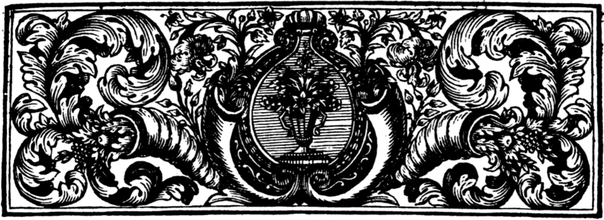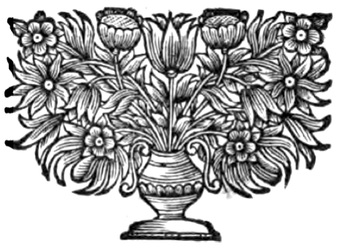Taking Herbal Medicine
Herbal Medicine may be used in a variety of ways, both internally and externally:
|
Internally:
1. Powder 2. Pills 3. Infusion 4. Decoction 5. Syrups 6. Wines and Tinctures 7. Others |
Externally:
1. Ointments 2. Plasters 3. Fomentations 4. Washes, Baths 5. Enemas and Douches |
Powder
Powders are a good way to take herbs as they are generally fairly cheap, can be taken without preparation such as boiling herbs, and the dose required is smaller when compared to infusion or decoctions.
Powders are generally taken in warm water or a herbal tea. They may be put directly into the mouth and then washed down with the liquid, or they may be mixed into the tea, or mixed with Honey. If the Powder tastes bad or it is difficult to swallow, it may be put into capsules which can be bought at pharmacies.
Pills
Pills are easy to take, and therefore may have better compliance. They are cost effective, and are generally effective if produced by a reliable company. And today, many pills are prepared from concentrated extracts, making fewer pills work more effectively.
Depending on the medicines, they may need to be taken before or after food, 2 or 3 times daily, being washed down with warm water or Ginger tea unless a specific vehicle is prescribed.
Infusions
Infusion means a tea, like when you make a cup of regular tea: herbs are steeped in hot water for 5 or 10 minutes, then strained and drank. This is a good way to take a simple and pleasant-tasting herbal tea that can be taken every day as part of the daily routine. For example, Ginger tea prepared by steeping slices of fresh Ginger root in a cup of hot water can be taken daily if the digestion is weak. It is good to find a herbal tea that is suitable for your type of constitution or body-type. Camomile tea if you are up-tight and nervous, or Nettle tea if you have fluid retention.
Decoction
This means boiling herbs down in water for a given length of time, usually 30 or more minutes. This is the strongest way to extract maximum amount of benefit from herbs because a large amount of herbs can be cooked into several cups of water to be taken throughout the day. This is the preferred method for taking herbs in China as the effects are strong, the formulas can be modified as needed, and the patient can fairly easily prepare the herbs daily once they have learned how to do it.
Taste can be a disadvantage, but usually even bad tasting decoctions begin to taste better after a week or 10 days; in fact, people often report liking herbs they originally hated the taste of.
General Method of Decoction:
1. Soak herbs for a few hours in water; strain
2. Add fresh water, bring to the boil, then simmer, covered, for 40 minutes, or down to half
3. Strain into a thermos and have 2 or 3 cups daily, usually before meals
NOTE: this is only a rough guideline and there are many variations.
Syrups
These are primarily used for Cough and Lung medicines. They are decoctions that are thick, sweet and pleasant tasting due to the addition of sugar or honey.
Wine and Tinctures
Both of these methods add herbs to alcohol. The alcohol becomes the extractive and carrier for the herbs which tends to work better than water.
Herbal wines can be prepared at home by adding herbs to wine, leaving for 6 or 12 hours, and having a small glassful morning and night. Try a sprig of Rosemary in red wine to promote circulation.
Tinctures are good because relatively smaller doses are generally required, but they contain alcohol so are not suitable for children, people of certain religions, or alcoholics.
External medicines
These medicines are generally applied topically to treat such things as pain, swelling, inflammation, sores, wounds and skin conditions.
Questions about taking herbs
Q. What if I don't like the taste?
A. The Taste of herbs is often a very important part of Traditional Medicine. The taste of herbs can help the action of the medicine. For example, bitter herbs stimulate saliva, increase appetite, promote the flow of bile and gastric juice, encourage the bowels and bladder even before it is swallowed and the active ingredients absorbed.
If the taste is bad, start with a smaller dose. If the herbs are taken as a decoction, cook for a shorter time to begin with. Also, instead of having a full dose at once, the dose can be divided into several smaller doses, and if tea is taken luke-warm instead of hot, it can be taken more quickly. In most cases, the taste can be masked with a little Honey.
However, if the taste is persisted with, it will become acceptable, sometimes likeable, within a week.
Q. What if I have any unwanted effects?
A. If you have any unpleasant effects from taking herbal medicine, you should always stop until speaking with your practitioner.
However, sometimes mild side effects can be expected. Slight nausea, rumbling or colic in the intestines, more active bowels or increased urine flow may be expected with certain medicines when started and is completely normal.
The important thing is that any concerning symptom or side effect indicates that the medicine should be stopped until you have spoken to your practitioner.
Q. What if I can't take my herbs?
A. If you forget a dose, you can generally miss that dose and continue with the next scheduled dose. If you forgot to have herbs before dinner, you can usually wait until an hour after dinner to have them. If you can't physically take your herbs because of nausea, gastro, taste etc., stop and speak with your practitioner.
Q. What if I might be Pregnant?
A. Herbs should be stopped until you have spoken with your practitioner. Certain herbs should not be taken during pregnancy. In addition, if you are planning to try getting pregnant, it is best to tell your practitioner before getting herbal medicine.
Q. What if I cook herbs for too long?
A. If you over-cook your herbs, they can still be taken, but in a smaller dose. For example, if you were meant to have 3 cups daily, but you cook so that there is only 2 cups left, have 2/3 cup doses instead. If the herbs are burnt, throw them away.
Q. How long will my herbs keep for?
A. In general, Herbs will keep for a year or longer if kept in a cool, dark, dry place. A plastic sealed contained is a good place to keep them. Light and Heat will destroy the herbs more quickly.
Q. Can I use my herbs for someone else?
A. In general you should not share your herbs with others without asking your practitioner.
Q. Should I tell my Doctor?
A. It's always good to tell your Doctor. While some Doctors will ridicule or tell you herbs are dangerous, many younger Doctors support your right to choice, and some Doctors even prescribe Herbal Medicine themselves.
Q. What if my doctor gives me other medication? Can I take herbs with Western medicine?
A. In general, the large amount of Herbs are very safe. However, some herbs can interact with some medicines. Most commonly, the herb may interact with drug metabolism meaning the drug may not work as well. In other cases, a herb may have an effect similar to a medicine being used so that the effect is too strong. For these reasons, you should tell your practitioner what medicines you are taking and tell your practitioner if your Doctor prescribes a new medicine.
Q. Is it true that the effects of herbal medicine is not proven?
A. Yes and No. There has been an enormous amount of research into Herbal Medicine, especially in countries like China and Russia, but also in Germany, the United States and many other Western countries. Western medicine tends to rely on double-blind placebo-controlled trials to prove a given drug will work safely and effectively. There are relatively few of these types of trials for Herbal Medicine, hence some people say Herbal Medicine is unproven.
Herbalists will argue that centuries of clinical use accounts for a certain amount of 'proof', and that the individual nature of Herbal treatment makes such trials difficult to conduct. However, in the past decades there are more and more clinical trials being conducted, even in hospitals. For example, trials have been conducted in Melbourne Hospitals to test the effectiveness of Chinese Medicine in Hepatitis. The results were comparable to modern Western treatment, with less side effets.
There is an overwhelming amount of research into the pharmacological effects of Herbal Medicine and their constituents. In addition, a large percentage of Western Medicines are still derived from Herbal Medicine, and many of those uses were found because of Traditional use.


